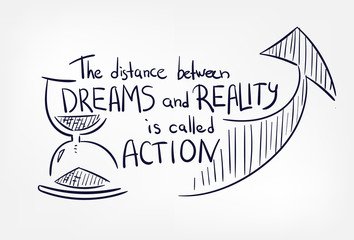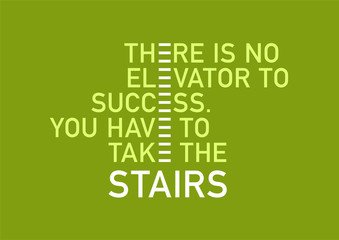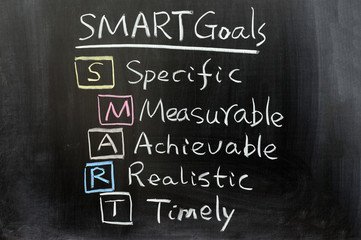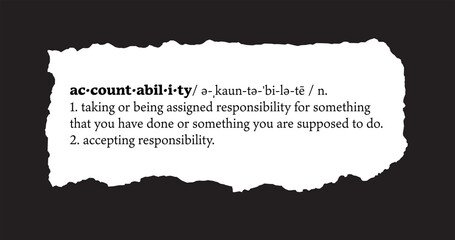
Here we are, a new year in full swing. You’ve probably already heard the chatter: Setting new year resolutions, “This is the year I’ll finally hit the gym every day!” or “I’m going to eat clean all year long!” But let’s stop right there and ask ourselves: Are we setting ourselves up for success, or are we just making new year resolution promises that we’ll forget by February? Or will we be making realistic new year goals.
New year resolutions vs. new year goals, it’s a critical distinction that will set the tone for 2025. Resolutions often feel more like a pressure to change something about ourselves, typically in the heat of the moment when the excitement of a fresh start of a new year. But what happens when that initial motivation fades, and reality kicks in? Most resolutions end up as distant memories.
On the other hand, goals are specific, actionable, and tied to your long-term vision. When set correctly, goals provide a clear roadmap that gets you from where you are now to where you want to be.
So, instead of making vague promises that might slip away, let’s talk about setting realistic goals for 2025—goals that inspire, challenge, and move you forward with purpose.
1. Start with Gratitude, It’s Your Foundation for Growth

Before we dive into goal-setting, let’s press pause for a moment. Gratitude isn’t just something nice to feel; it’s the foundation for everything you’re about to do. Reflect on your journey—2024 might not have been perfect, but you made it through. You’ve learned lessons, grown stronger, and now you’re ready for the next chapter.
Here’s why gratitude matters: When you appreciate what you’ve accomplished and how far you’ve come, it builds your self-worth and gives you the energy to take on new challenges. This gratitude mindset isn’t just a one-time thing either—it needs to become part of your daily life. When you look at your progress, no matter how small, you’re more likely to stay motivated.
Tip: Take a moment right now. Write down three things you’re grateful for from last year—whether it’s personal growth, challenges that taught you something, or even moments of joy. Gratitude gives you strength as you move forward.
2. Make Your New Year Goals Personal and Focus on Your Reason Why You Want to Achieve Them

No one knows what’s best for you more than you do. So why try to follow someone else’s blueprint for success? This year, make your goals deeply personal and connected to what truly matters to you. Your goals should align with your core values, passions, and dreams.
If you want to get healthier, don’t do it because society tells you to. Do it because you want to feel more energized, stronger, or more at peace with your body. If your goal is to advance your career, dig deeper than the surface level of “I want a promotion.” Ask yourself: Why do I want this? What will it bring to my life that’s meaningful? How will it impact my happiness and well-being?
Tip: Sit down and reflect on your values. What drives you? What gives you a sense of purpose? When you align your goals with these core beliefs, they become a natural extension of who you are, and achieving them will feel more rewarding.

3. Break It Down, Small Steps Lead to Big Wins
Big goals can be intimidating. Let’s say you want to lose 30 pounds, launch a business, or write a book. Those are fantastic aspirations, but they can feel like mountains to climb if you don’t break them down. The key is to focus on small, consistent actions that will eventually get you to your big goal.
Start by breaking your goal into smaller, manageable tasks. Instead of focusing solely on the final result, commit to a series of actions that will gradually bring you closer to that result. This way, you’re more likely to stay motivated, because progress feels tangible and achievable every step of the way.
Tip: Let’s take that book example. Instead of saying “Write a book,” aim for “Write 1,000 words a week.” This way, you’re tracking your progress and steadily building toward your ultimate goal without feeling overwhelmed.
4. Use the SMART Method: Set Specific, Measurable, and Achievable Goals
Here’s where we really get into the mechanics of goal-setting. Have you ever heard of the SMART goal method? It stands for Specific, Measurable, Achievable, Relevant, and Time-bound. These five components will help you avoid vague, unachievable resolutions and create clear, actionable goals.

Here’s an example of how to apply this to a goal like saving money:
- Specific: “I want to save money” is too vague. Let’s make it specific: “I want to save $5,000 by the end of the year.”
- Measurable: Track how much you’re saving each month. This way, you know exactly how close you are to your target.
- Achievable: Is $5,000 realistic for you? If not, adjust it to something that fits your current situation.
- Relevant: Saving money aligns with your desire for financial security.
- Time-bound: Set a deadline for your goal, like December 31st, to give it a sense of urgency.
Tip: Don’t just set the goal—track your progress along the way. Seeing how far you’ve come will motivate you to keep going.
5. Build in Flexibility Because Life Will Throw You Unexpected Circumstances
Life doesn’t always go according to plan. You can’t control everything, and that’s okay. Setting realistic goals means you’re giving yourself the flexibility to adjust when necessary, without giving up entirely. If you miss a workout or miss a deadline, don’t throw in the towel. Stay flexible and rework your plan instead of abandoning it altogether.

Tip: Remember that life is a marathon, not a sprint. Setbacks are part of the journey. When you hit an obstacle, ask yourself: What can I learn from this? Adjust, regroup, and keep moving forward.
6. Celebrate Small Wins, Every Step of Progress Through the Process Matters
If you’re only focused on the finish line, you might miss the beauty of the journey. When you make progress toward your goals, celebrate those small victories—no matter how tiny they may seem. Did you save $100 this month toward that $5,000 goal? Celebrate it! Did you write 500 words of your book? Celebrate it!
Celebrating your achievements reinforces positive behavior, making it more likely you’ll keep going. Plus, it’s a great way to stay motivated, especially when you’re in the grind.
Tip: Set mini milestones along the way and reward yourself when you hit them. Maybe it’s treating yourself to a nice meal, enjoying a relaxing evening, or doing something that feels like a well-deserved break.

7. Accountability is Important, Have Someone You Trust to Hold you Accountable
We all need a little help sometimes. Whether it’s from a friend, a family member, or a mentor, having someone to check in with can sometime make all the difference. Accountability is key when it comes to achieving your goals. Having someone to cheer you on and hold you accountable can keep you on track, especially when the motivation starts to go away.
Tip: Find a friend, mentor, or group to share your goals with. Set up regular check-ins, even if it’s just once a month, to share progress and challenges. You’ll be surprised at how much that external support can boost your commitment.
You Got This, 2025 Is Yours
Setting realistic goals in 2025 isn’t just about hitting a target; it’s about making progress in a way that’s meaningful and sustainable. No more fleeting resolutions that fade away by February or before. This year, you’re creating a clear, actionable plan to achieve your goals. The journey starts today, one goal at a time, one small step forward.
